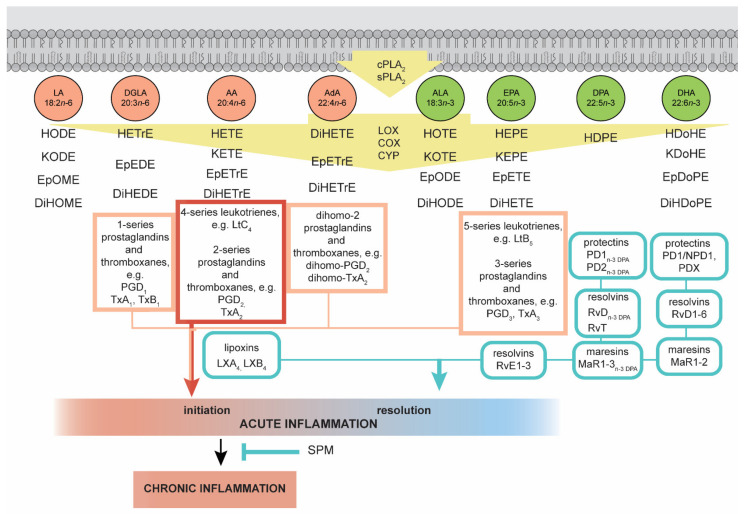Figure 2.
Lipid mediators enzymatically derived from n–3 and n–6 polyunsaturated fatty acids (PUFAs) and their role in inflammation. Acute inflammation response consists of three stages: initiation, development and resolution. In case of acute inflammation can lead to chronic inflammation. Polyunsaturated fatty acids released from phospholipids by cytosolic phospholipase A2 (cPLA2) and secreted phospholipase A2 (sPLA2) are converted by lipoxygenases (LOX), cyclooxygenases (COX) and cytochrome P450 (CYP) enzymes into bioactive oxylipins that act on inflammation. Specialized pro-resolving mediators (SPMs) can prevent the development of chronic inflammation. AA-derived oxylipins, such as prostaglandins, leukotrienes and thromboxanes, have pro-inflammatory proprieties. DGLA, AdA and EPA are precursors for less pro-inflammatory oxylipins. Major SPMs are synthesized from n–3 PUFAs. The blue marking indicates pro-resolving oxylipins. The red marking denotes pro-inflammatory lipid mediators. References: [67,72,73,79,80,81,82].

